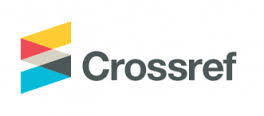تكنولوجيا التعليم العوامل المؤثرة في امتلاك طلبة جامعة آل البيت للمهارات الرقمية
DOI:
https://doi.org/10.59759/educational.v4i2.1050الكلمات المفتاحية:
Factors Influencing، Digital Skills، Al al-Bayt Universityالملخص
هدفت هذه الدراسة التعرف إلى العوامل المؤثرة في امتلاك طلبة جامعة آل البيت للمهارات الرقمية. وتكون مجتمع الدراسة من جميع طلبة جامعة آل البيت في الفصل الدراسي الأول للعام الجامعي (2025/2024)، في حين جاءت عينة الدراسة عينة عشوائية طبقية، والبالغ عددها (524) طالباً وطالبة. ولتحقيق أهداف الدراسة تم استخدام المنهج الوصفي، باستخدام الاستبانة كأداة للدراسة، وتكونت من ستة مجالات مجموع فقراتها (55) فقرة. أظهرت نتائج الدراسة أنَّ العوامل المؤثرة في امتلاك طلبة جامعة آل البيت للمهارات الرقمية جاءت متوسطة، كما أظهرت النتائج كذلك عدم وجود فروق ذات دلالة إحصائية عند مستوى الدلالة (α≤0.05) في المهارات الرقمية التي اكتسبها طلبة جامعة آل البيت تعزى لمتغير الجنس، وكذلك وجود فروق ذات دلالة إحصائية عند مستوى الدلالة (α≤0.05) في المهارات الرقمية التي اكتسبها طلبة جامعة آل البيت تعزى لـِ (السنة الدراسية، والمعدل التراكمي).
التنزيلات
المراجع
Al-Adwan, A., Albelbisi, N. A., & Al-Adwan, A. S. (2021). Promoting digital literacy among university students in Jordan: A study on challenges and opportunities. Education and Information Technologies, 26(3), 3055–3075. https://doi.org/10.1007/s10639-020-10418-1
Alam, S., & Hussein, M. (2021). Digital skills and their impact on university students' academic success. International Journal of Digital Education, 15(4), 68-82.
Anderson, J. (2021). Digital literacy in higher education: A review of recent trends. Education Press.
Anderson, J., & Xu, L. (2021). The role of digital competencies in academic performance: A case study of university students. Educational Technology Journal, 40(2), 102-115.
Arias, R.; Aparicio, A.S. Habilidades del pensamiento y rendimiento académico en estudiantes universitarios de las carreras de Ingeniería y Arquitectura. Rev. Investig. Psicol. 2018, 21, 67–78. [CrossRef]
Baker, R., & Green, A. (2023). Bridging the digital divide: Improving digital literacy among university students. Journal of Education and Technology, 29(1), 23-34.
Collis, J., & Hussey, R. (2013). Business research: A practical guide for undergraduate and postgraduate students. Macmillan International Higher Education.
Dede, C. (2010). Comparing frameworks for 21st century skills. In Bellanca, J. & Brandt, R. (Eds.) 21st century skills: Rethinking how students learn (pp. 51-76). Bloomington, Indiana: Solution Tree Press.
Elkassabgi, A. (2020). Digital transformation in higher education: A case study of universities in the Middle East. Journal of Higher Education Development, 35(2), 200-215.
Fajardo-Bullón, F.; Maestre-Campos, M.; Felipe-Castaño, E.; León del Barco, B.; Polo del Río, M. Análisis del rendimiento académico de los alumnos de educación secundaria obligatoria según las variables familiares. Educ. Xx1 2017, 20, 209–232. [CrossRef]
Graham, C., & Hennessy, K. (2022). Digital skills for the digital age: A framework for higher education. Journal of Educational Innovation, 14(3), 44-59.
Hassan, R., & Al-Momani, S. (2021). Factors affecting the acquisition of digital skills among university students: A case study of Jordanian universities. Journal of Digital Education, 34(2), 125-141. https://doi.org/10.1016/j.jdedu.2021.03.004
Jackman, J.A., Gentile, D.A., Cho, NJ. et al. (2023). Addressing the digital skills gap for future education. Nat Hum Behave ,(5), 542–545.
DOI: org/10.1038/s41562-021-01074-z
Jamal, A., & Hamdan, M. (2022). The role of psychological and social factors in the development of digital skills in university students. International Journal of Educational Technology, 45(3), 212-230.
https://doi.org/10.1080/13400030.2022.1982167
Leung, M., Choi, Y., & Tan, S. (2020). Assessing digital literacy among university students: Challenges and solutions. Journal of Educational Psychology, 52(6), 18-32.
Miller, R. (2022). The impact of digital skills on academic outcomes in higher education. Academic Press.
Nitin, K. (2016). Effectiveness of Instructional Strategy on Life Skill of Problem Solving in Terms of Class VIII Student Achievement in Science. Proceedings of 8th International Conference on Life Skills Education. New Delhi: Excel India Publisher, 75-78.
OECD. (2019). Skills Outlook 2019: Thriving in a Digital World. OECD Publishing. https://doi.org/10.1787/df80bc12-en
Redecker, C. (2017). European Framework for the Digital Competence of Educators: DigCompEdu. Publications Office of the European Union.
Salavera, C.; Usán, P. Influence of internalizing and externalizing problems on self efficacy in Secondary students. Rev. Investig. Educ. 2019, 37, 413–429. [CrossRef]
Sekaran, U., & Bougie, R. (2016). Research methods for business: A skill building approach. John Wiley & Sons.
Smith, L., & Johnson, P. (2023). The digital divide in higher education: Analyzing the skills gap in university students. Higher Education Review, 45(1), 72-89.
Solano, L.O. Rendimiento Académico de los Estudiantes con las Aptitudes Mentales y las actitudes ante el estudio. Ph.D. Thesis, Facultad de Educación, Universidad Nacional de Educación a Distancia UNED, Madrid, Spain, 2015.
Umesh, Kaur, N. (2019). Significance of Life Skills Education. International Journal of 3600Management Review, 7(2019); 1-5. UNICEF (2002).
Vaske, J. J., Beaman, J., & Sponarski, C. C. (2017). Rethinking internal consistency in Cronbach’s alpha. Leisure Sciences, 39 (2), 163–173.
World Economic Forum. (2020). The Future of Jobs Report 2020. https://www.weforum.org/reports/the-future-of-jobs-report-2020


